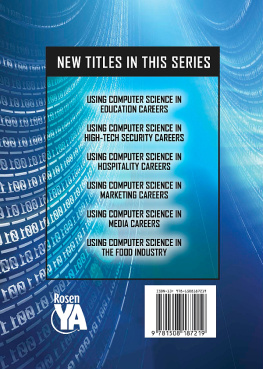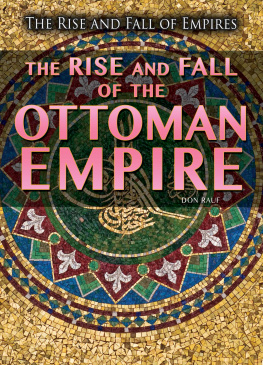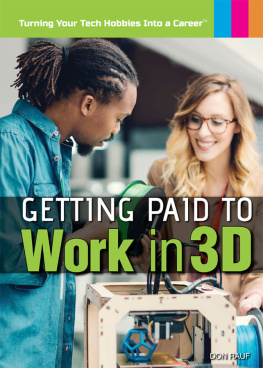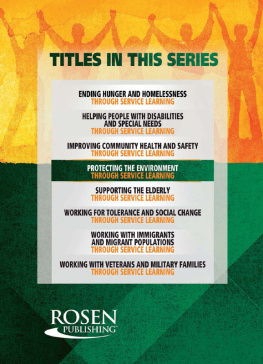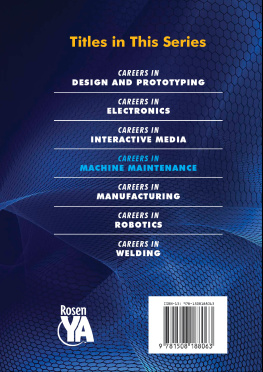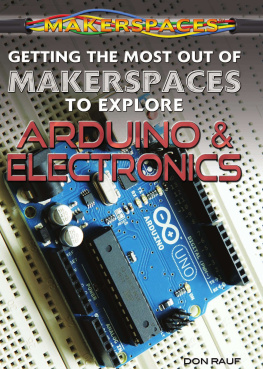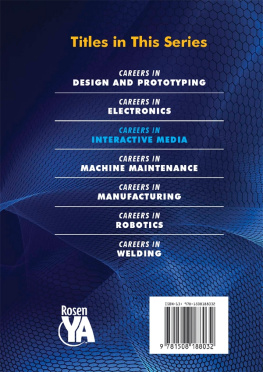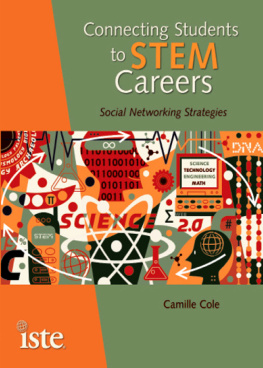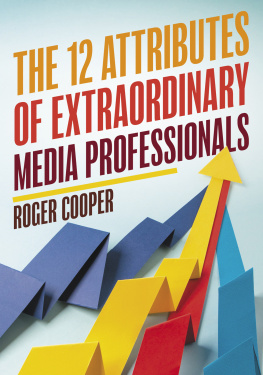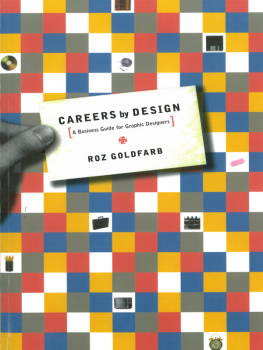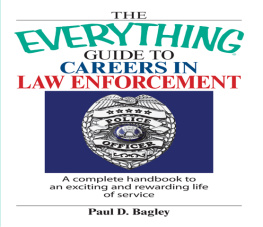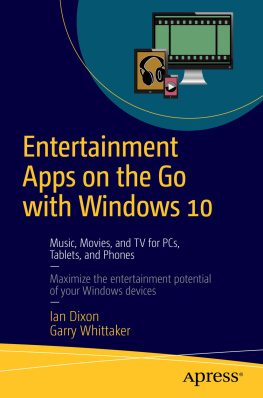
Published in 2020 by The Rosen Publishing Group, Inc.
29 East 21st Street, New York, NY 10010
Copyright 2020 by The Rosen Publishing Group, Inc.
First Edition
All rights reserved. No part of this book may be reproduced in any form without permission in writing from the publisher, except by a reviewer.
Library of Congress Cataloging-in-Publication Data
Names: Rauf, Don, author.
Title: Using computer science in media careers / Don Rauf.
Description: First edition. | New York: Rosen Publishing, 2020. | Series: Coding your passion | Includes bibliographical references and index. | Audience: Grades: 712.
Identifiers: LCCN 2018043390| ISBN 9781508187226 (library bound) | ISBN 9781508187219 (pbk.)
Subjects: LCSH: Mass mediaVocational guidance Juvenile literature. | Computer scienceVocational guidanceJuvenile literature. | Mass media and technologyJuvenile literature.
Classification: LCC P91.6 .R38 2020 | DDC 302.23023dc23 LC record available at https://lccn.loc.gov/2018043390
Manufactured in the United States of America
CONTENTS
INTRODUCTION
H ow do you get your news and information about the world? You may listen to a podcast or stream a news program on your phone. You may follow several publications or blogs. Or you may watch a documentary or read books about important current affairs. All these ways of communicating information to a large number of people are known collectively as the media. And today there are more types of media than ever before. Were surrounded by information wherever we go. Information is not only on our portable devices, but bombarding us on screens in elevators, taxis, and even at the gas pump.
Media jobs in television, film, radio, and online can all offer exciting opportunities for those who care about ideas and information and presenting them to the general public. Joan Grossman is an independent filmmaker who teaches video production at the Middlebury College School of the Environment in Vermont and China. She has also produced programming for public radio and made multimedia installations for museums and galleries internationally that expand the documentary form. Grossman always had a strong interest in journalism. When she studied the subject at Northwestern University Medill School of Journalism in Chicago, she realized that media could have many forms. When we use the term the media, people are thinking of everything from print journalism to films and video to internet content its all part of our mass media system, she said in an interview for this book. Today, its not just a few networks broadcasting to many but many entities distributing information to the public.

Today, people get their news from all sorts of devices, often in quick short doses from their smartphones and other handheld devices.
This new media landscape grew with the help of the computer. When images and sounds could be digitized and uploaded to a computer, they became easier to capture, edit, and distribute. Technology paved the way for a tsunami of information from an endless number of sources. While the world of media is certainly a creative one, success in this field requires a strong knowledge of computer science. Computers are playing a bigger and bigger role in media and this role is evolving all the time, said Grossman.
Almost all media jobs today require computer skills, and the more you have, the more valuable and attractive you may be to employers. Advanced computer skills can mean more earning potential as well. Software, hardware, and coding are essential components in media, even in areas that are not always associated with high techsuch as book publishing and newspaper journalism. Even if you dont master coding and more complex skills, some computer talent is a must in the media universe.
Many schools today include science, technology, engineering, and mathematics (STEM) in their curricula. All these subjects can help students better understand computers and the principles on which they operate. Many educators have added another more creative element to this mix and advocate for a curriculum called STEAM (science, technology, engineering, art, and mathematics). STEAM proponents believe in encouraging creative thinking and innovation, and they see art as a means of achieving that. Certainly, these are qualities needed in the media world today. While all STEAM-related knowledge is helpful, students may still need to take an extra step and pursue specific computer training if their school doesnt offer such courses.
Microsoft founder Bill Gates has stressed how important computers are in all our lives today and why learning how they work can be advantageous: I think its fair to say that personal computers have become the most empowering tool weve ever created. Theyre tools of communication, theyre tools of creativity, and they can be shaped by their user.
CHAPTER ONE
MEDIA GOES DIGITAL
M edia careers offer many interesting, challenging, and creative opportunities. Those entering the media field today know that computers and the internet have changed everything. While traditional print and broadcast media have not gone away, they have had to adapt to survive by embracing technology and offering their content digitally. The use of the internet and digital technology for mass communication has been dubbed new media. Consumers today are much more likely to get their news through Facebook and Google than a newspaper or the six oclock news, as many people used to.
The media businesses that have survived and thrived have embraced change and stayed up to date with current trends. In an article in Medium, Jamie Gavin, managing director of inPress Online, a media agency that helps businesses with media strategies, said that publishers have had to adapt by making their content shorter, shareable, and relevant for multiple formats.

Currently, about two-thirds of Americans report that they get at least some of their news on social media such as Facebook.
COMPUTER SKILLS ARE A MUST
By fully embracing new media, Michael Rosenblum established a very successful career. He started in TV news, where segments were filmed using a crew, cameraman, producer, and reporter, but he saw that quality personalized TV journalism could be made by one person with one small video camera, who films his or her own footage of news in the making and edits it using software on a computer. He showed many media outlets how to use this cost-saving idea. For example, Rosenblum took the concept to Current TV, which he founded with Al Gore. Overall, he has produced more than 8,000 hours of content using this one-personwith-a-camera method. To teach others, he established the online video/TV/film school TheVJ.com.
To succeed in the media world today, Rosenblum stresses that computer skills are a must. Television, film, and video production today are 100 percent computer skills, said Rosenblum in an interview for this book. We shoot all of our video on phones now. The video is a digital file. The editing is done on a computer, and the distribution is done online. It is a 100 percent computer-based industry. The more skills you have the better off.
In Forbes magazine, writer Mike Elgan calls young adults today digital natives, meaning people born in the age of digital technology. He recognizes that they are using computers more than previous generations, but they dont know whats going on under the hood because using a computer doesnt take as much knowledge and skill as it once did. He said that they are often comfortable with solving problems with an app or an internet-based service, but they need to know how to build their own creative solutions and have a better understanding of computers.
Next page
